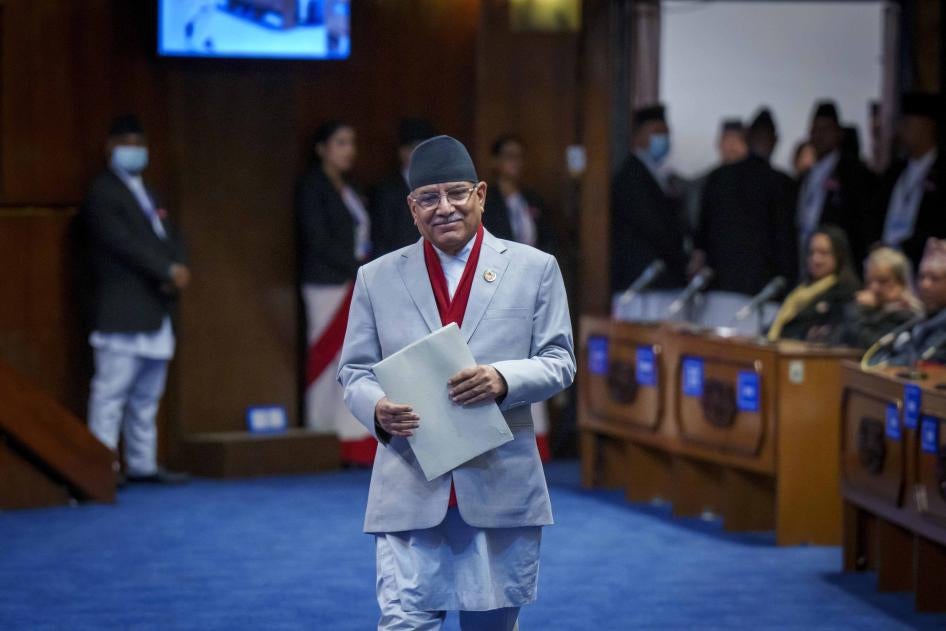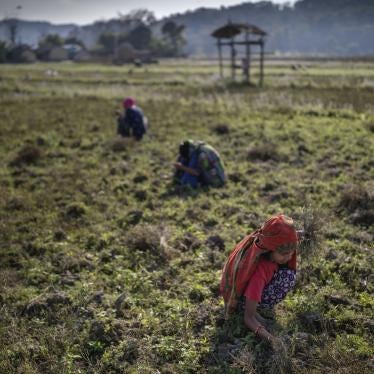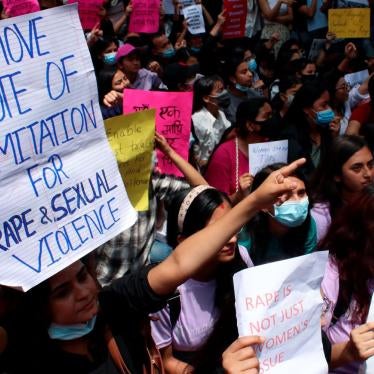(New York) – Nepal’s new government led by Prime Minister Pushpa Kamal Dahal should focus on upholding Nepalis’ rights and strengthening the rule of law, Human Rights Watch said in a letter released on February 25, 2023. Dahal is leading a new coalition government after elections in November.
The Covid-19 pandemic set back progress in protecting rights to health and education. Successive governments have blocked or delayed essential steps in other fields, including accountability for conflict era abuses and ensuring citizenship rights for all Nepalis.
“Nepal is facing significant social and economic challenges, but the newly elected government also has an opportunity to deliver on long-overdue human rights priorities,” said Meenakshi Ganguly, South Asia director at Human Rights Watch. “Prime Minister Dahal once led an armed Maoist rebellion to demand equity and justice and should now act to lawfully deliver pledges that he had once sought through violence.”
Social security is a human right recognized in the Nepali Constitution. However, children, women, and informal workers are largely invisible to the social protection system. Extending Nepal’s successful child grant program would significantly reduce poverty, improve nutrition and school attendance, reduce child labor, and improve future productivity. The child grant is currently available to all children under age 5 in 25 districts and to Dalit children across the country. The Nepali government should extend and increase child grants to include all Nepali children, Human Rights Watch said.
Victims of conflict-era abuses have waited over 16 years for the justice process that was promised in the Comprehensive Peace Agreement. The Truth and Reconciliation Commission and the Commission of Investigation on Enforced Disappeared Persons, which were set up in 2015, have received over 60,000 complaints but have failed to resolve a single case. Meanwhile, successive governments have blocked conflict-era cases from proceeding through the regular courts. Denying justice for crimes covered by international law means that courts in other countries may take up these cases under the principle of universal jurisdiction.
Although funds have been allotted for interim relief to survivors of sexual violence during the conflict, there has been no progress in disbursing them, Human Rights Watch said. The survivors need this support to deal with the long-term impacts of sexual violence.
Previous governments have repeatedly promised to bring the Enforced Disappearances Enquiry, Truth and Reconciliation Commission Act, 2014, into conformity with international law, as directed by the Supreme Court in 2015, but failed to do so. In 2022, the government introduced an amendment that was an improvement in some respects upon the 2014 law. However, it still needs significant further amendments to meet Nepal’s obligations to bring justice for serious crimes in violation of international law.
A credible process should include truth telling, reparation, institutional reform, and avenues for accountability that meet fair trial standards and ensure prosecutions of serious crimes.
The lack of accountability for conflict-era abuses has helped to entrench impunity in post-conflict Nepal, undermining fundamental rights and weakening the rule of law. Recent attacks on Dalits, including killings, show that caste-based violence and discrimination are rarely investigated or prosecuted. On October 15, 2020, the previous National Human Rights Commission members published 20 years of data, naming 286 people as suspects in serious crimes. However, the police and prosecutorial authorities do not appear to have investigated or attempted to prosecute these people. The commission has played an important role in the past to expose rights violations. However, the Global Alliance of National Human Rights Institutions has recommended downgrading it from “A” to “B” status due to concerns over “the appointment process of the current NHRC members” and whether the commission has “spoken out in a manner that promotes and protects all human rights.”
Prime Minister Dahal should ensure that the government actively seeks to investigate and, where supported by evidence, prosecute those implicated in abuses, Human Rights Watch said. The government should also abolish the statute of limitations for rape. The government should also ensure that all appointments to constitutional bodies are made in a rigorous, transparent, and inclusive manner, including proper parliamentary scrutiny.
Nepal has developed ground-breaking policies to protect lesbian, gay, bisexual and transgender (LGBT) people since 2007. However, implementation gaps persist, and strong legislation is needed to prevent abuses, particularly against transgender people.
An estimated 6.7 million people in Nepal are forced to live without citizenship and are at risk of statelessness due to flawed citizenship laws. Nepal’s 2006 Citizenship Act, as well as the 2015 constitution, contain provisions that discriminate against women by making it harder for them to pass Nepali citizenship to their children. The government should promptly bring legislation to ensure that all Nepalis have equal and full citizenship rights, Human Rights Watch said.
Nepal’s health system was severely tested in 2022 by the largest dengue outbreak the country has yet suffered. Dengue and other mosquito-borne diseases are projected to become more widespread and severe as a result of climate change. The government should urgently bolster public health systems, including measures to control the spread of mosquito-borne infections.
“Prime Minister Dahal should build on successes in social and economic rights in recent years and especially extend the widely admired child grant to protect the rights of children,” Ganguly said. “Victims of conflict era violations have waited far too long to know the truth and receive justice, and this government has an important opportunity to finally adopt legislation complies with Nepal’s legal obligations.”








